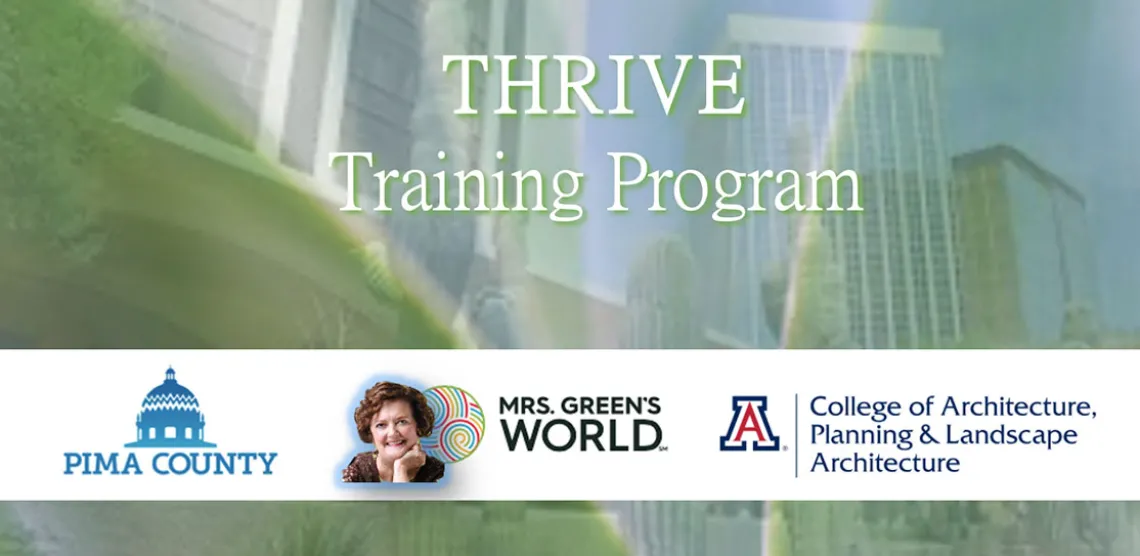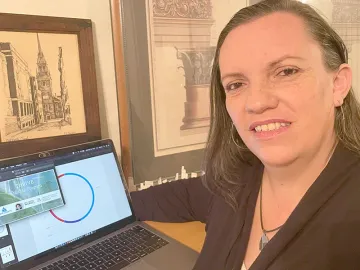CAPLA, Mrs. Green’s World and Pima County Team Up to Increase Participation in County’s Sustainable Action Plan

Lecturer in Architecture Sandra Bernal-Cordova of the UArizona College of Architecture, Planning and Landscape Architecture is working collaboratively with Mrs. Green’s World and the Pima County Office of Sustainability and Conservation to design, implement and evaluate an employee engagement program called THRIVE-SAPCO.
The goal of the Sustainable Action Plan for County Operations (SAPCO) engagement program, according to Pima County, is “to make learning about sustainability and climate change an unforgettable experience… with the intention of sowing knowledge and passion about green stewardship here in Pima County.”
Bernal, Gina Murphy-Darling of Mrs. Green’s World and county representatives will conduct a live, online learning experience that includes appearances by sustainability experts and scientists. County employees who complete the program will be crowned “Green Stewards,” creating a “new community of county employees who will help all of us be more sustainable in county operations,” say county representatives.

Architecture Lecturer Sandra Bernal-Cordova with the online THRIVE-SAPCO training program.
The THRIVE team’s work began in February 2021 with a survey to gauge county employees’ levels of awareness, skills, engagement and support for sustainability and climate efforts; and to identify opportunities and barriers to employees’ engagement as well as their levels of support for certain types of sustainability and climate actions in county operations.
“As a team we believe that our work is a unique academic-private-public partnership that is innovating with an interactive training and research-based curriculum,” says Bernal-Cordova. “The program we are creating, as Mrs. Green describes it, is the foundation to navigate real-world solutions, easily practiced without additional technology or training and leveraging collective experiences, knowledge and skillsets.”
Bernal-Cordova’s focus is running a unique analytical process that measures the environmental and health benefits of virtual meetings compared to in-person meetings, taking into account such factors as heating, cooling and transportation. In addition to curriculum development, she is tracking participants’ exposure to and reactions from the program’s curriculum so that the team may make adjustments along the way.
The training will be modularized, comprehensive and customizable, and though targeted at county employees, reaches beyond the workplace to “inspire action to help mitigate the impact of climate change at work, in communities and at home,” says Bernal-Cordova.
The THRIVE-SAPCO engagement program is expected to last through June 1, 2021, lending valuable insights for the long-term success of the Sustainable Action Plan for County Operations.



